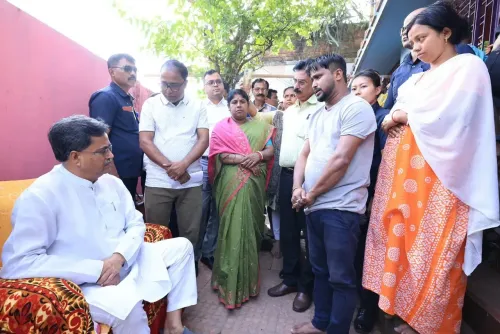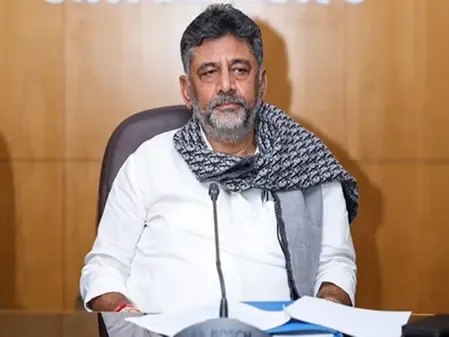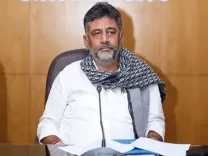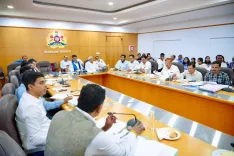Supreme Court Set to Hear Plea Next Week for Removal of Offensive Social Media Posts Targeting Judiciary
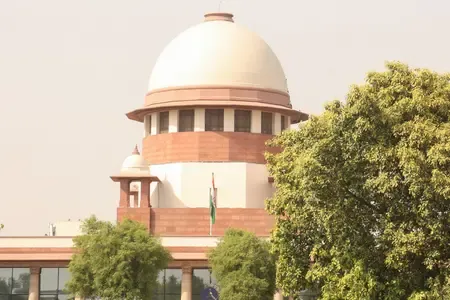
Synopsis
Key Takeaways
- The Supreme Court is set to hear a plea regarding derogatory posts against the judiciary.
- BJP MP Nishikant Dubey's comments have sparked controversy.
- The Attorney General's consent is necessary for initiating contempt proceedings.
- Opposition parties accuse the BJP of undermining the judiciary.
- The BJP has distanced itself from the MPs' remarks.
New Delhi, April 22 (NationPress) The Supreme Court has agreed to schedule a hearing next week regarding a plea aimed at the removal of offensive social media posts aimed at the judiciary, prompted by BJP Lok Sabha member Nishikant Dubey, who made unacceptable remarks about the top court and the Chief Justice of India (CJI).
The counsel for the petitioner presented the matter to a Bench led by Justice B.R. Gavai for urgent consideration.
The attorney stated that following the legislator's comments aimed at the highest court, social media platforms were inundated with derogatory and contemptuous posts regarding the judiciary.
He remarked, “Letters were dispatched to the Attorney General and Solicitor General to seek approval for initiating criminal contempt actions against the MP (Nishikant Dubey). However, no action has been taken by the government. We request directives for social media platforms to eliminate videos, etc.”
Following the submission, the Justice Gavai-led Bench consented to schedule the plea for consideration next week.
The previous day, the Justice Gavai-led Bench informed a lawyer that the consent of the Attorney General of India, who serves as the highest legal authority of the Centre, is required to commence contempt proceedings against BJP MP Nishikant Dubey.
"Prepare a case before the AG. He will grant permission. You can file it (criminal contempt plea). You don’t need our permission for filing," it observed.
According to Section 15 (1) (b) of the Contempt of Courts Act, 1971, the Supreme Court can initiate criminal contempt based on a motion from a private complainant only after acquiring written consent from the Attorney General or Solicitor General.
In the context of ongoing discussions about the constitutionality of the Waqf (Amendment) Act, 2025, Dubey questioned the judiciary's involvement in legislative affairs, implying that if the courts take on lawmaking responsibilities, the role of Parliament becomes superfluous.
Dubey's statements targeting the Supreme Court have garnered notable attention, particularly the term “anarchy” which he used, along with “inciting religious wars”.
This controversy has ignited political discourse, with opposition parties like Congress accusing the BJP of attempting to weaken the judiciary.
During the hearings, the Central government assured the Supreme Court that it would not invalidate provisions concerning 'Waqf-by-user' or involve non-Muslim members in the Waqf Board.
This assurance came after the top court hinted that it might consider pausing certain aspects of the law.
In the meantime, the BJP has distanced itself from the comments made by two of its Members of Parliament (MPs) -- Nishikant Dubey and Dinesh Sharma – clarifying that these remarks were “personal opinions” and do not represent the party’s viewpoint.
In a post on X, BJP chief J.P. Nadda distanced the party from the MPs' comments.
"The BJP disassociates itself from the statements made by BJP MPs Nishikant Dubey and Dinesh Sharma regarding the judiciary and the Chief Justice of the nation. These are their individual remarks, and the BJP neither endorses such statements nor supports them. The BJP completely repudiates these comments," J.P. Nadda stated.
The party reaffirmed its commitment to honoring judicial orders and recommendations and has instructed its members to avoid making similar statements in the future.

